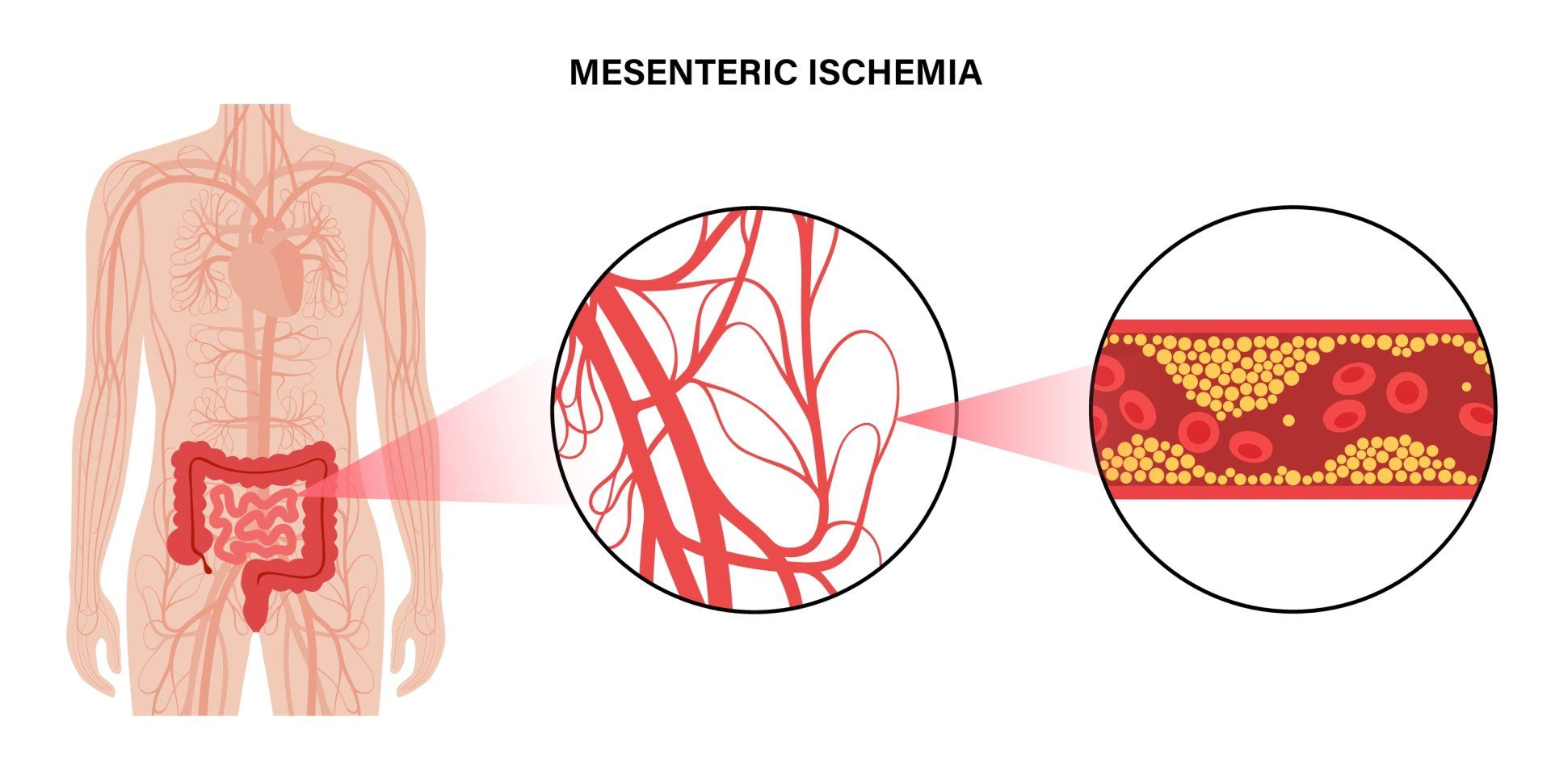Mesenteric Artery Stenosis

Mesenteric artery stenosis occurs when plaque builds up in the arteries that supply blood flow to the intestines. Thery are three of these vessels, the celiac artery, the superior mesenteric artery, and the inferior mesenteric artery.
Risk factors include cigarette smoking, diabetes, high cholesterol levels, high blood pressure, family history of cardiovascular or peripheral vascular disease, and obesity.
Symptoms
Usually chronic. They are gradual, occur over months, and include stomach pain after eating and weight loss because there is a fear of eating to avoid the pain. The symptoms can also be more acute if the artery clots because of the narrowing. This can also happen in someone with a normal artery who throws a blood clot from the heart secondary to an irregular heart beat (afib) or after a heart attack. If acute, the pain can be more sudden and severe (like a heart attack of the intestines).
Diagnosis
Usually made by CTA of the abdomen and pelvis. This would show the narrowing in the mesenteric arteries and if acute, may show a clot in the arteries as well as inflammation/ischemia of the intestines.
Treatment
Non-surgical treatment consists of smoking cessation, cholesterol and blood pressure medications, blood thinning medications, and exercise.
Minimally invasive treatment may include an arteriogram and stent placement by your vascular surgeon.
If severe, or acute, it may require an operation to remove the clot and place a stent vs. a surgical bypass around the blockage.
Schedule an Appointment
For more information about our Paducah Vascular Institute and the services we offer, please call (270)845-4300 to schedule your appointment today.
Clinic Location
2419 New Holt Road
Paducah, Kentucky 42001
Contact Us
Phone:
270-845-4300
Fax: 270-845-4301


